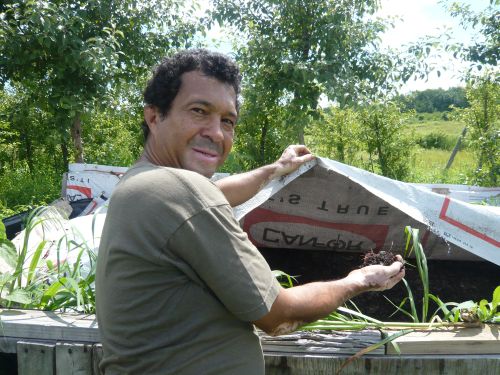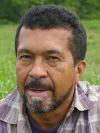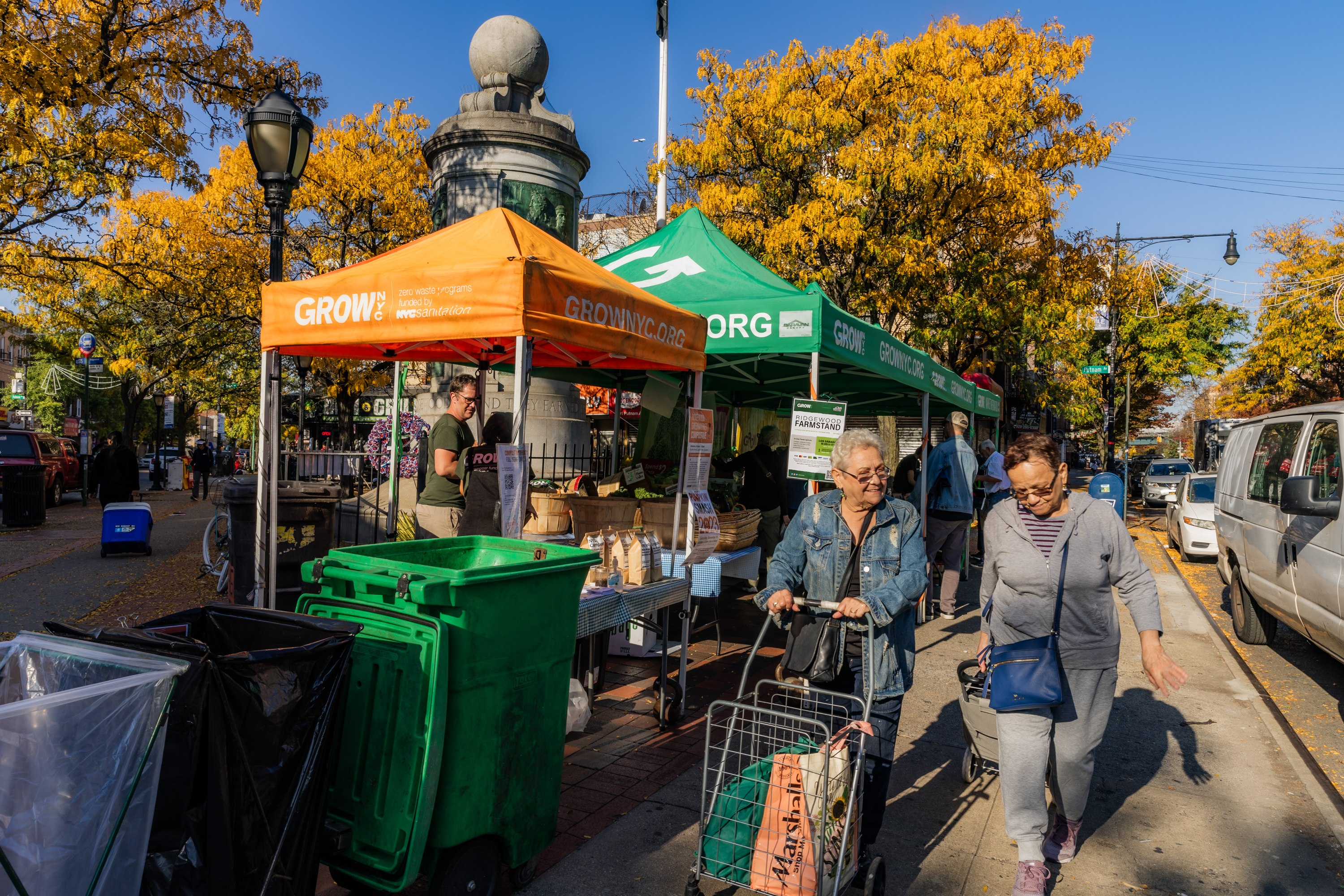Location: Redhook and Coxsackie, New York
Native country: Colombia
Acres cultivated: 25
Years with NFDP: 11 -- The first NFDP farmer
Products: Eggs, vegetables, honey and value-added products
Where to find Tello's Green Farm Products
"If you produce your products with love and care, they're going to turn out high quality. And that's what makes customers come back; that's what I think."
What did you do before you became a farmer? I was a veterinarian technician.
What was your motivation for becoming a farmer in the United States? Well, the truth is that I always had the inclination to be a farmer in Colombia, but it was hard, because of the country's insecurity. So I emigrated to the U.S. with that idea, and once I arrived I started looking for a farm in Georgia, but it didn't work out. When I saw in the paper that the NFDP was helping farmers, I responded to the call.
In what way has your previous experience helped you in agriculture? Because I had knowledge in cattle and livestock management, and some experience with crops and agricultural engineering, it made everything easier. It helps a lot.
In the beginning as an NFDP farmer, what was the experience, tool or advice that helped you the most? Through the program, I met a farmer who was doing what I wanted to do: he had a poultry farm. He retired and I had the opportunity to meet the market need. That was the best luck I had.

If you could go back and do over that first year of being an NFDP farmer, what would you change, or what do you do differently? Actually, the changes I would have made are the ones I'm making. When I started, there weren't as many resources or information in the program. But now there is so much of everything. So I wouldn't say I'd change anything from that first year per se. We did what we could with what we had.
Which benefit from being part of NFDP would you say has been the most important for you? The economic help, because without the economic help, I wouldn't have been able to go on, or maintain things. Because it's really difficult in a business when there are moments you need money and if you don't have anywhere to get it, it's really hard.
Where do you sell your products? For Greenmarkets in Union Square Mondays, Wednesdays and Fridays, 97th Street on Fridays, Grand Army and Fort Greene Saturdays, Jackson Heights and Carroll Gardens Sundays. We also sell at markets in Ramsey, New Jersey and Brewster, New York.
Who helps you on the farm and what do they do? I have two people helping me right now: Cesar manages all the eggs, and Juan, who will manage all the crops. Alejahndra is the marketing manager. And I'm the problem solver.
How would you describe your production practices? I always try to have production practices as natural as possible, without using anything from outside the farm. That is, using the rules of permaculture, where everything that's used is from around the animals. I try not to put anything extra on the floor for the chickens. Using biodynamic techniques in accordance with the lunar cycles, as well as permaculture principles.
Do you have plans to expand your business? Plans, yes, many. Right now, my main project is doing value-added. We're thinking of making chicken soup and a few products with beans to introduce into the markets.
Whats the best part of being a farmer, in your experience? I think the best part of being a famer is that I feel really close to nature, and that relaxes me. When I'm working on the farm, I relax. For me that's the best part.
What do you consider the greatest challenge or obstacle in agriculture? Well the biggest one for me are the seasons. It's a great obstacle for someone coming from the tropics. In the tropics, you can have an idea and you just start it, without thinking about the time of year. The month doesn't matter -- you plant a seed and it grows. But here, you have to pay attention to the season, you have to plan exactly what you're going to plant. If you lose the window, the whole season passes you by.
What keeps your customers coming back to your market stand? I try to treat my customers really well. It plays a really important role, as well as the quality of the product you sell. If you produce your products with love and care, they're going to turn out high quality. And that's what makes the customers come back; that's what I think.
What about your farm are you most proud of? I'm pleased that my customers appreciate what I do, but to say I'm proud... I don't like to use that word. It's a big word.
What is the most important lesson you have learned as a farmer? Having patience. As a farmer, you have to have a lot of patience. Before, I wasn't a very patient person. But now I have to have a lot of patience.
What advice would you give to a new farmer? That they try to do things from their heart, and that they have patience, because in the beginning, things don't turn out like you might like, but little by little they get better. For some, things go well, for others, not. Around the third year is when things start to improve. Also, it's hard to move. Try not to move, and if you can buy yourself a little parcel of land where you know you'll be forever, that's the best.
What will your farm be like in ten years? Prettier. In 10 years, I'm going to have the farm I've always dreamt of. And I'm going to have the opportunity to work less and make more. I have always that you need to work. I don't see myself not working, but I'll have to find a way to work that isn't as wearing, and that has money coming in so we can live and get the things we need.
What will be your next big investment in your farm? The next one will be planting the grains that my hens need, that is, to steer the farm more in a permaculture and holistic direction.










